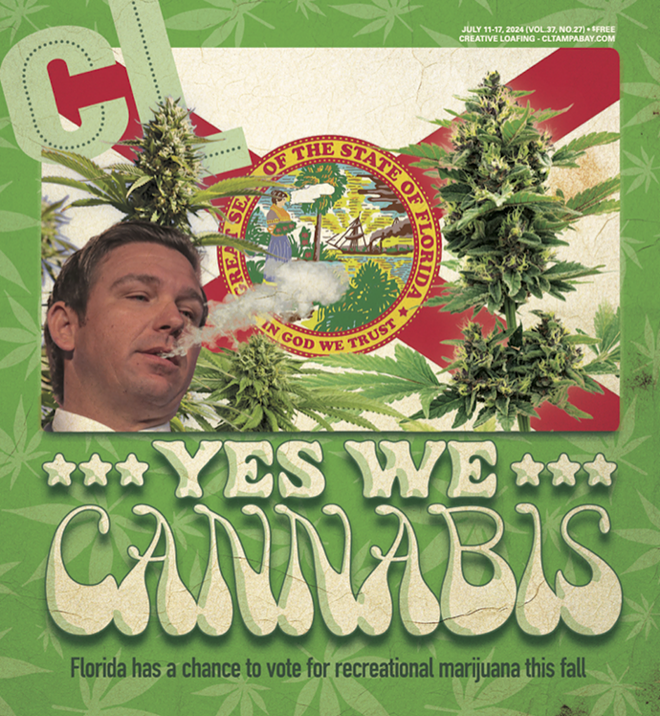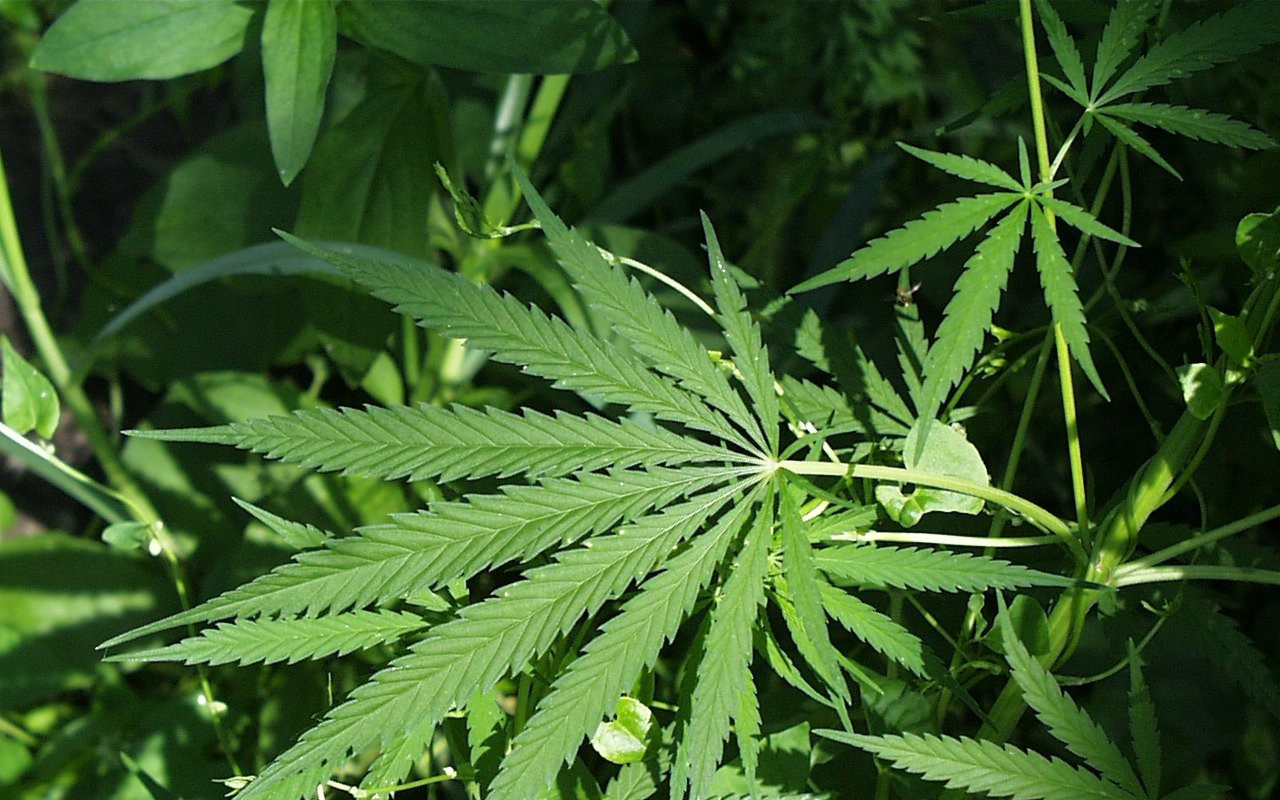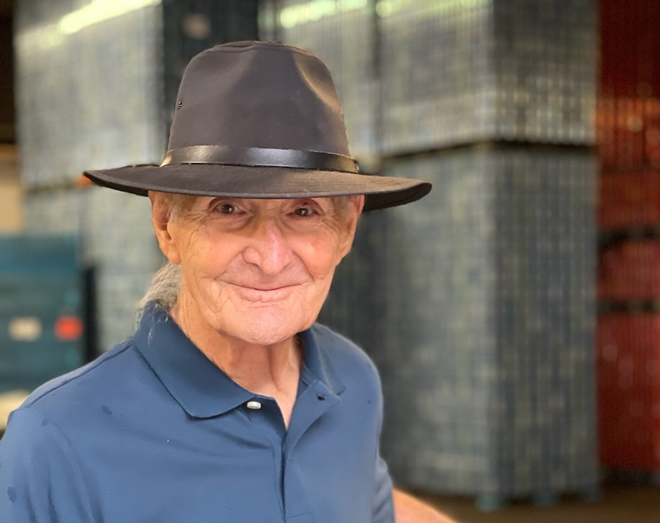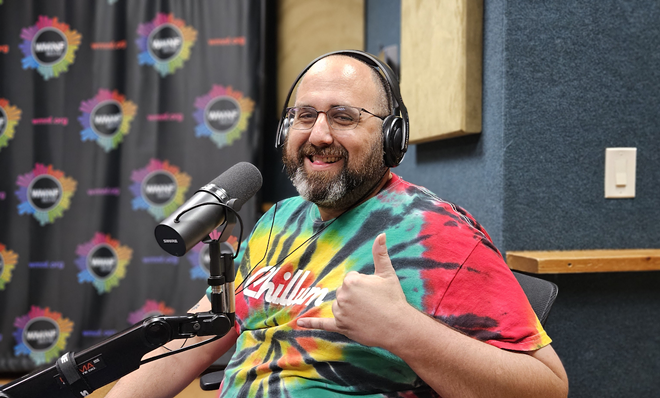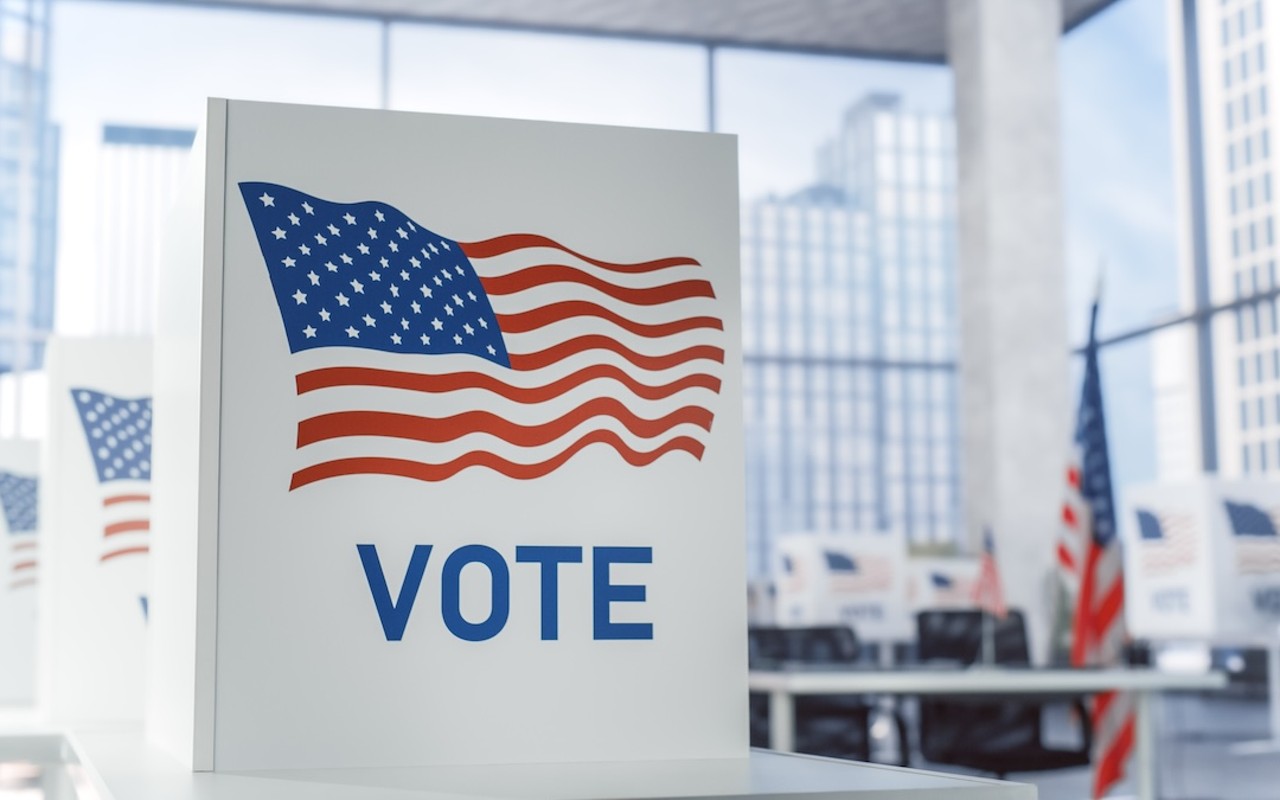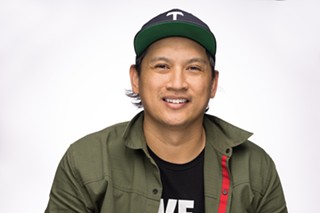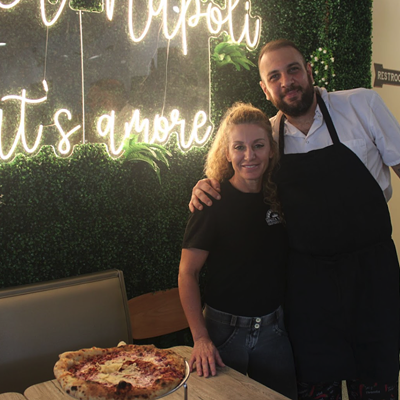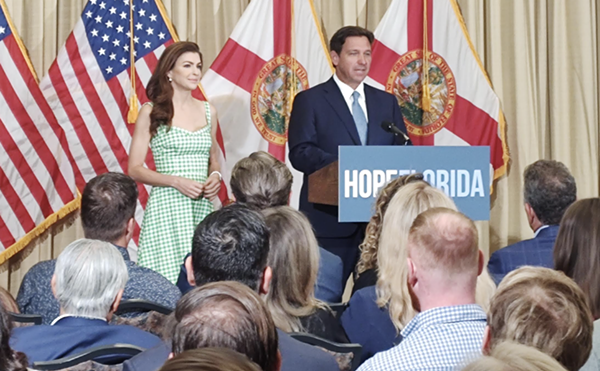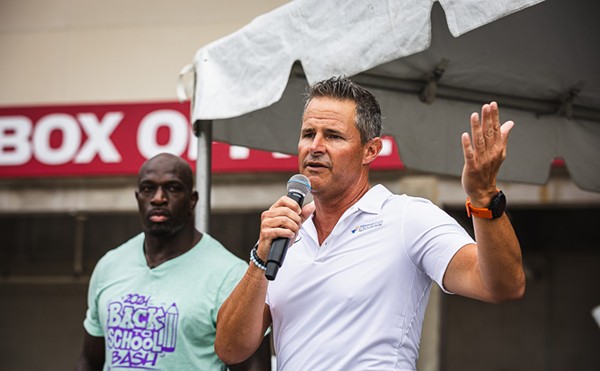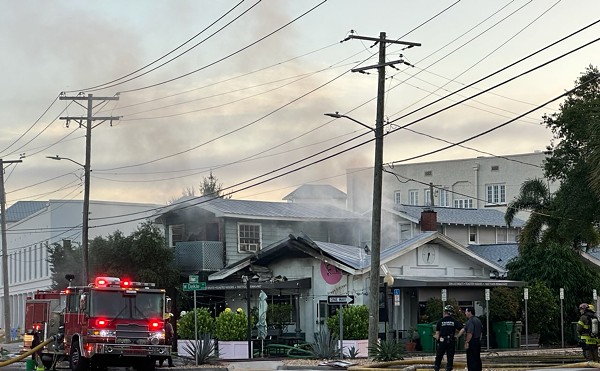Amendment 3 ballot languageThe initiative is popular, too.
Allows adults 21 years or older to possess, purchase, or use marijuana products and marijuana accessories for non-medical personal consumption by smoking, ingestion, or otherwise; allows Medical Marijuana Treatment Centers, and other state licensed entities, to acquire, cultivate, process, manufacture, sell, and distribute such products and accessories. Applies to Florida law; does not change, or immunize violations of, federal law. Establishes possession limits for personal use. Allows consistent legislation. Defines terms. Provides effective date.Its passage—dependent on whether or not 60% of voters approve the amendment in the Nov. 5 general election—would make the Sunshine State the 25th in the nation to legalize pot for recreational use.
“What cannabis offers to patients, to consumers, is something that crosses party lines,” Chris Polaszek, Co-Founder and Chief Legal Officer of Sunburn Cannabis, which has a store in Tampa, told Creative Loafing Tampa Bay.
The numbers
A June Fox News poll supports that claim, showing high approval for Amendment 3 among registered Florida voters who identify as Democrats (76%), Independents (71%) and even Republicans (57%). Across the U.S., according to Pew Research Center’s March poll, 88% of adults say that marijuana should be legal for medical and recreational purposes.Some studies suggest that if the amendment passes, the number of Floridians who consume marijuana will likely increase. Tax revenue could balloon, too.
Economists recently estimated that once the market is fully operational, retail sales of non-medical marijuana in Florida would generate between $195-$431 million annually in state and local taxes.
And contrary to some critics’ claims, a study in the American Medical Association network found that fewer minors reported having used weed in states where the drug was legal. Other studies have also shown that legalizing recreational cannabis does not increase substance abuse.
"I personally am a firm believer that consenting adults should have the ability to make choices in terms of what they want to do, what they want to take, how they want to live their lives," Polaszek added. "So, you know, for me, I'm excited that at least now the voters in Florida have an opportunity to make the decision."
Joe Redner is even more blunt about it. “It’s not the government’s business,” he told CL.
Tampa’s “strip club king” has battled for personal liberties throughout his career, and says medical marijuana helped him beat the stage four lung cancer he was diagnosed with in 2011.
Since 2018, the 84-year-old has been in numerous court battles over pot.
A 2018 ruling by a Leon County Circuit Judge saw Redner successfully fight the state in a battle to grow his own marijuana for juicing as part of a treatment that his doctor ordered to prevent a relapse. But a three-judge panel in the appeals court overturned that ruling a year later; Redner’s request to send the case to the Florida Supreme Court was rejected, too.
That same year, Redner’s company Florigrown also applied to become a medical marijuana treatment center (MMTC), but was denied by the Florida Department of Health—so Florigrown sued the state hoping to challenge the vertical integration model, which requires an MMTC to be integrated from seed to sale.
In 2021, however, the Florida Supreme Court ultimately overturned lower court rulings saying that the state’s medical marijuana regulatory scheme is unconstitutional. The decision brought much to the ire of the model's critics.
In the weeds
When he filed failed legislation attempting to dismantle that model, former State Senator Jeff Brandes called vertical-integration “a state-sanctioned cartel system that limits competition, inhibits access, and results in higher prices for patients.”The same system would presumably be in place if Amendment 3 passes—until legislators actually tweak the rules.
Sunburn's Polaszek made the case that running a vertically-integrated business is difficult when compliance, testing and license renewal fees are taken into consideration. "It's hard enough to run a cultivation facility in isolation. It's hard enough to run a dispensary in isolation. It's hard enough to run a a just a delivery system. Imagine being in a system where you not only have to do one thing right, you have to do many things right, if not perfect," he added.
Others would like to see that system change sooner than later.
Chris Cano is Executive Director for the Suncoast chapter of the National Organization for the Reform of Marijuana Laws (NORML), and this month he told WMNF public affairs program The Skinny that lawmakers must do more to put the consumer first.
“The whole issue that we’re having with all of this is there’s no political will and no testicular fortitude among our legislators to actually be bold and actually pass legislation to reform the vertically integrated system,” Cano, whose group supports Amendment 3, added.
Cano's many concerns include how medical patients, and potential recreational users, might be affected if there's a bad crop at a vertically-integrated entity. "There's no one else to turn to. There's no boutique grower to go get product from," he added.
Even opponents of Amendment 3 have tried to use the system in their arguments.
Last summer, in a brief urging the state Supreme Court to reject the proposed “Adult Use of Marijuana” initiative, state Solicitor General Henry Whitaker claimed that the proposal “entrenches the sponsor’s monopolistic stranglehold on the marijuana market to the detriment of Floridians.”
The “sponsor” Whitaker alludes to is Smart & Safe Florida, a committee that received, as of July 1, $55.27 million from Trulieve, which operates 141 medical marijuana dispensaries in Florida—including 10 in the Bay area between Westchase and Apollo Beach.
Some estimate that a MMTC license in Florida is worth up to $50 million. But only around two dozen companies actually have them, according to WJCT. While a new law signed by Gov. Ron DeSantis may finally get disrespected Black farmers involved in the medical marijuana industry, 22 other MMTC applications the state accepted in April 2023 haven't moved.
Redner's company Florigrown has repeatedly followed up about the status of its application. Adam Elend, Redner's partner in Florigrown, told CL, "If they don't issue it before November, it's just a naked power grab."
Staying focused
But Carlos Hermida—Founder of Chillum Mushroom and Hemp and the and the Florida Cannabis Coalition—said that complaining about the imperfections of the amendment takes away from the real issue of legislators actually being able to implement Amendment 3 should it pass.After all, many of those voters who’ll vote yes on three this fall did the same for the state’s medical marijuana amendment eight years ago—then watched the legislature take two more years to finalize laws clearing the way for smokeable medicine.
On paper, Hermida—a hemp shop owner who won't have an opportunity to sell recreational weed if Amendment 3 passes—might look like a guy who would oppose the initiative. His industry breathed a sigh of relief when DeSantis vetoed SB 1698, a bill that could have presented an existential threat to its existence—but he still backs the ballot intiative.
"The backers of Amendment 3 have tried to take me out of my livelihood," Hermida told The Skinny, alluding to Trulieve's backing of SB 1698, which would have imposed regulations on intoxicating hemp-derived products in Florida. "But I want to make one really big point to anybody in the hemp industry in Florida—I urge you to read Ron DeSantis' veto."
In the veto, DeSantis asks Florida lawmakers to revisit the regulation of hemp in the next legislative session.
"We're going to be under attack again," Hermida added. "As much as my financial interests might be to vote no on three. I am actually for Amendment 3... my business interests are my business interests, but I need to be able to sleep at the end of the day."
The complaints about the amendment and what it doesn’t have—it doesn’t open up the business, it doesn’t open up for homegrow—are all things, according to Hermida, "that our legislature could quite easily do."
Sunburn Cannabis’ Polaszek shared a similar sentiment, and said, “The hardest work, I believe, starts after Amendment 3 passes.”
Ron DeSantis' potential crusade against recreational weed
And despite the its popularity and wide range of support, there is still another figure looming over Amendment 3—Ron DeSantis.The governor recently indicated that his Florida Freedom Fund PAC is working with entities who want to defeat the initiative. Last April, he described the the proposal as “extreme” and “radical,” and recently went as far as saying, “we cannot have every town smelling like marijuana.”
For clarification on DeSantis' comments, his office pointed CL to a Q&A at the end of a June 25 presser in Umatilla where he rattled off vocabulary that triggers some conservative voters ("Chicago," "San Francisco") and claimed that hotels and theme parks would smell like weed.
But Cano said voter education will be key to dispelling any falsehoods about the initiative and getting Amendment 3 across the finish line. To that end, he said Suncoast NORML is holding a free Aug. 6 virtual town hall where the group will accept public comment and questions.
“It’s making sure the voter knows, when they go into the ballot box, what they’re voting for, what Amendment 3 does and what it doesn’t do,” he told The Skinny.
Redner, who’s also supporting Amendment 3 despite its shortcomings, was even more confident and told CL that recreational use is a foregone conclusion in Florida.
“I don’t see anything to stop it,” Redner told CL. “I think the governor is wasting his time.”
Event Details
Follow us: Google News | NewsBreak | Reddit | Instagram | Facebook | Twitter

